The aviation industry in India has experienced significant growth, marked by increased air travel, expanding fleets, and modernized infrastructure. With the emergence of low-cost carriers and government initiatives, air travel has become more accessible. Major airports have undergone upgrades, and new ones have been constructed to accommodate the rising demand. India's aviation sector continues to attract investments, fostering innovation and creating job opportunities, making it a dynamic and pivotal contributor to the country's economic development.
Don't wanna be here? Send us removal request.
Text
What Are The Minimum Educational Qualifications Required For A B.Com Course?

A Bachelor of Commerce (B.Com) is one of the most popular undergraduate courses for students interested in business, finance, and commerce-related fields. Many students consider pursuing a B.Com degree but are often unsure about the minimum educational qualifications required for admission. In this article, we will discuss the basic eligibility criteria needed to enroll in a B.Com program.
Basic Educational Requirements
Completion of 12th Grade (Higher Secondary Education): The most important requirement for admission into a B.Com course is passing the 12th standard or an equivalent examination from a recognized board.
Stream of Study in 12th Grade: Most colleges prefer students from the Commerce stream. However, some institutions also accept students from Science or Arts backgrounds if they meet the required eligibility criteria.
Minimum Percentage Requirement: The required percentage varies from college to college. Generally, students need at least 45% to 50% marks in their 12th board exams. Some top universities and colleges may have a higher cutoff, ranging from 75% to 90%.
Recognized Education Board: The candidate must have completed their 12th education from a recognized board such as CBSE, ICSE, or any state board.
Additional Eligibility Criteria
Subject Requirements: While not mandatory in all colleges, some universities require students to have studied Commerce-related subjects such as Accountancy, Business Studies, and Economics in their 12th grade.
Entrance Exams: Most universities offer admission based on merit, but some reputed institutions conduct entrance exams for B.Com admissions.
Age Limit: There is usually no specific age limit for B.Com admissions, but some universities may have restrictions on the maximum age for enrollment.
Reserved Category Relaxation: Many colleges provide relaxation in cutoff percentages for students belonging to SC/ST/OBC or other reserved categories as per government norms.
Special Cases
Science and Arts Students: Some colleges accept students from Science or Arts backgrounds if they meet the merit requirements.
Diploma Holders: Some institutions allow diploma holders to apply for B.Com, provided their diploma is recognized as equivalent to the 12th standard.
International Students: Students from foreign countries must have an equivalent qualification recognized by the respective university they are applying to.
Types of B.Com Courses
B.Com (General): A standard three-year undergraduate program focusing on commerce and business fundamentals.
B.Com (Honours): A more specialized program with an in-depth focus on subjects like accounting, finance, and business management.
B.Com (Distance Education): An option for students who wish to complete their degree remotely while managing other commitments.
Conclusion
A B.Com degree is an excellent choice for students interested in commerce, finance, and business. The minimum qualification required is passing the 12th standard from a recognized board, usually with a minimum of 45-50% marks. While the admission process varies across institutions, having a commerce background can be beneficial. Students should check the specific requirements of their chosen university before applying to ensure a smooth admission process.
0 notes
Text
What Are The Core Subjects In B.Tech Computer Science?

B.Tech in Computer Science Engineering (CSE) is one of the most popular engineering programs, focusing on computing technologies, programming, and system design. The curriculum is designed to equip students with theoretical and practical knowledge in various domains of computer science. Here are the core subjects that form the foundation of a B.Tech CSE program.
1. Programming and Data Structures
This subject introduces students to fundamental programming languages like C, C++, Java, and Python. It also covers data structures such as arrays, linked lists, stacks, queues, trees, and graphs, which are essential for efficient algorithm development.
2. Algorithms
Algorithms play a crucial role in problem-solving. Students learn about searching, sorting, dynamic programming, and graph algorithms. They also explore algorithm design techniques like divide and conquer, greedy algorithms, and backtracking.
3. Computer Networks
This subject covers networking fundamentals, including the OSI and TCP/IP models, data communication, network protocols, and security. It helps students understand how computers communicate over networks like the internet.
4. Database Management Systems (DBMS)
DBMS introduces students to relational databases, SQL, normalization, indexing, and transactions. Popular database systems like MySQL, PostgreSQL, and MongoDB are also studied in practical applications.
5. Operating Systems (OS)
Operating systems manage computer hardware and software resources. Topics include process management, memory management, file systems, scheduling algorithms, and concurrency in OS like Windows, Linux, and macOS.
6. Object-Oriented Programming (OOP)
OOP focuses on concepts like classes, objects, inheritance, polymorphism, encapsulation, and abstraction. Java, C++, and Python are commonly used languages for OOP principles.
7. Computer Architecture and Organization
This subject explores the internal structure of computers, including CPU design, memory hierarchy, instruction sets, and input/output mechanisms. It helps students understand how hardware and software interact.
8. Artificial Intelligence (AI) and Machine Learning (ML)
AI and ML are growing fields in computer science. Students learn about neural networks, deep learning, natural language processing, and AI algorithms that help in automation and decision-making.
9. Software Engineering
This subject focuses on software development methodologies, testing, maintenance, and project management. Agile and DevOps practices are commonly discussed.
10. Cybersecurity and Cryptography
Security is an essential aspect of computing. Topics include encryption techniques, network security, ethical hacking, and risk management to protect data from cyber threats.
11. Web Development and Mobile App Development
Students learn to design and develop websites using HTML, CSS, JavaScript, and frameworks like React and Angular. Mobile app development covers Android and iOS development using tools like Flutter and Swift.
12. Cloud Computing and Big Data
Cloud computing introduces platforms like AWS, Azure, and Google Cloud. Big data topics include Hadoop, data analytics, and distributed computing.
Conclusion
B.Tech in Computer Science covers a diverse range of subjects that prepare students for various career opportunities in software development, data science, AI, cybersecurity, and more. Mastering these core subjects will help students build a strong foundation for a successful career in the IT industry.
0 notes
Text
Which Are The Top Institutes In India Offering Cabin Crew Training?
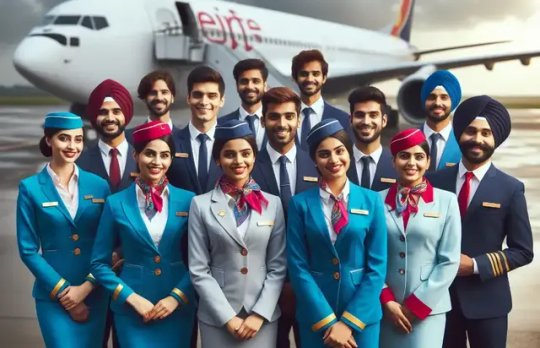
A career as a cabin crew member is an exciting opportunity for those passionate about travel, hospitality, and customer service. To succeed in this competitive field, specialized training is essential, and several institutes in India offer top-notch programs to prepare aspiring candidates for the challenges and responsibilities of the job. Here’s a look at some of the leading institutes in India offering cabin crew training.
1. Frankfinn Institute of Air Hostess Training
One of the most renowned names in aviation training, the Frankfinn Institute has a nationwide presence and a stellar reputation. The institute offers diploma and certification courses in aviation, hospitality, and travel management. Frankfinn’s comprehensive curriculum covers essential skills like communication, grooming, safety procedures, and in-flight services. The institute also provides excellent placement support with top airlines.
2. Air Hostess Academy (AHA)
AHA is another prominent name in cabin crew training. With centers in major cities like Delhi, Mumbai, and Bangalore, AHA offers programs that focus on personality development, soft skills, and aviation management. The training includes practical sessions on emergency handling, first aid, and customer service. AHA’s tie-ups with leading airlines ensure strong placement opportunities.
3. Indira Gandhi Institute of Aeronautics (IGIA)
Located in Chandigarh, IGIA provides a well-rounded cabin crew training program. The course is designed to equip students with the necessary skills for the aviation and hospitality industries. Key areas of focus include communication, grooming, safety procedures, and team management. The institute boasts modern facilities and experienced faculty.
4. Aptech Aviation and Hospitality Academy
Aptech Aviation offers specialized programs in aviation and hospitality management. The curriculum is industry-oriented, covering topics like passenger handling, emergency protocols, and grooming. With state-of-the-art facilities and experienced trainers, Aptech prepares students to excel in cabin crew roles. The academy also provides career counseling and placement assistance.
5. Wings Aviation Academy
Wings Aviation Academy, based in Hyderabad, is a reputed institute for cabin crew training. The academy’s courses focus on practical training, including mock drills for emergency situations, in-flight services, and customer interaction. Wings Aviation has a strong network with airlines, aiding students in securing jobs post-training.
6. Jet Airways Training Academy
Though primarily associated with Jet Airways, this academy offers comprehensive training programs for aspiring cabin crew members. The courses emphasize practical experience, focusing on real-life scenarios encountered during flights. Students benefit from expert guidance and hands-on training in a professional environment.
7. CAE Global Academy
Located in Bangalore, CAE Global Academy is well-known for its aviation training programs. Their cabin crew training course is designed to meet international standards, focusing on communication, teamwork, safety, and customer service. The academy provides excellent exposure to the aviation industry and placement opportunities with global airlines.
Conclusion
Choosing the right institute is a crucial step toward a successful career as a cabin crew member. Institutes like Frankfinn, AHA, and IGIA offer top-notch training programs tailored to the needs of the aviation industry. These programs focus not only on technical skills but also on personal development, ensuring candidates are well-prepared for this dynamic field. With the right training and dedication, aspiring cabin crew members can secure rewarding opportunities in both domestic and international airlines.
0 notes
Text
How Does A BBA In Aviation Different From Other Aviation-Related Degrees?
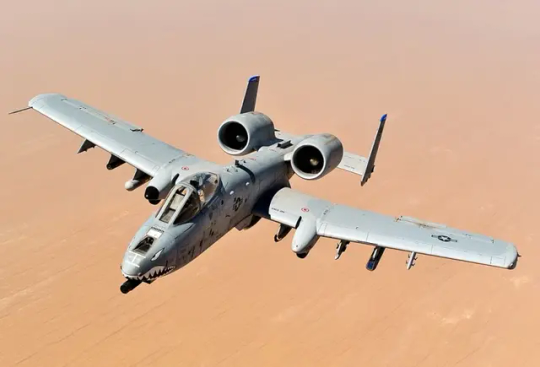
The aviation industry offers a variety of educational pathways for aspiring professionals, each catering to different interests and career goals. Among these, a Bachelor of Business Administration (BBA) in Aviation stands out for its unique focus on the management and business aspects of the industry. But how does it differ from other aviation-related degrees such as a B.Tech in Aeronautical Engineering or a Diploma in Aircraft Maintenance Engineering (AME)? Let’s explore.
Overview of BBA in Aviation
A BBA in Aviation is an undergraduate program that blends business management principles with aviation-specific knowledge. The course typically covers topics such as airline operations, airport management, logistics, customer service, and aviation marketing. This degree is designed for students who aim to pursue managerial and administrative roles in the aviation sector.
Key Differences Between BBA in Aviation and Other Aviation Degrees
1. Focus Area
BBA in Aviation: Primarily focuses on the business, managerial, and operational aspects of the aviation industry. Students learn about airline and airport management, financial planning, marketing strategies, and customer relationship management.
B.Tech in Aeronautical Engineering: Concentrates on the technical and engineering aspects of aviation. Students study aircraft design, aerodynamics, propulsion systems, and maintenance.
Diploma in AME: Specializes in the maintenance and repair of aircraft. This program equips students with the technical skills to inspect, troubleshoot, and ensure the airworthiness of aircraft.
2. Career Pathways
BBA in Aviation: Prepares students for roles in airline operations, airport management, aviation consulting, customer service management, and logistics.
B.Tech in Aeronautical Engineering: Leads to careers as aerospace engineers, design specialists, or research professionals in aircraft manufacturing or space exploration organizations.
Diploma in AME: Focuses on hands-on technical roles such as Aircraft Maintenance Engineer, ensuring the safety and functionality of aircraft.
3. Skill Set Development
BBA in Aviation: Develops managerial, analytical, and problem-solving skills, alongside business communication and customer service expertise.
B.Tech in Aeronautical Engineering: Builds a deep understanding of mathematics, physics, and engineering concepts related to aircraft.
Diploma in AME: Emphasizes technical proficiency in aircraft systems, tools, and maintenance protocols.
4. Program Duration and Structure
BBA in Aviation: Usually a 3-year program with a mix of theory, practical training, and internships.
B.Tech in Aeronautical Engineering: A 4-year degree involving intensive study of engineering principles and technical projects.
Diploma in AME: Typically a 2-3 year program focused on technical training and certification.
Advantages of BBA in Aviation
Versatile Career Options: Opens doors to diverse managerial roles in the aviation sector.
Industry-Relevant Curriculum: Focused on the current needs of the aviation industry.
Shorter Duration: Compared to technical degrees, it’s a faster pathway to enter the workforce.
Conclusion
While a B.Tech in Aeronautical Engineering and a Diploma in AME cater to the technical and engineering facets of aviation, a BBA in Aviation focuses on the business and operational side. This makes it an ideal choice for students interested in management roles within airlines, airports, and other aviation-related organizations. Understanding these differences can help students choose the right path based on their interests and career aspirations.
0 notes
Text
Why Do Pilots Earn High Salaries Compared To Other Professions?
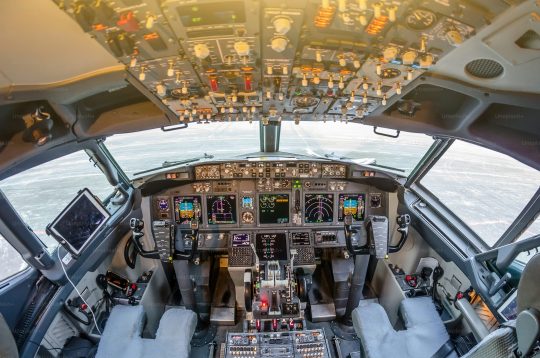
Pilots, especially those in commercial aviation, are among the highest-paid professionals globally. Their salaries reflect the demanding nature of their job, the responsibilities they carry, and the extensive qualifications required. Here’s a closer look at why pilots, particularly those with a Commercial Pilot License (CPL), earn significantly high salaries compared to other professions.
1. Extensive Training and Certification
Becoming a pilot requires rigorous training and certification. Aspiring pilots must obtain a CPL, which involves completing flight training, logging hundreds of flight hours, and passing stringent exams. This process demands significant time, effort, and financial investment, often costing between ₹25 lakhs to ₹50 lakhs or more. The high pay compensates for the resources invested in obtaining a CPL.
2. Critical Responsibilities
Pilots are responsible for the safety of hundreds of passengers, crew members, and the aircraft itself. They make critical decisions in real time, handle emergencies, and ensure smooth operations during flights. This level of responsibility justifies their higher salaries.
3. Demand for Skilled Pilots
The aviation industry is growing rapidly, with an increasing number of flights and passengers worldwide. However, there is a shortage of skilled pilots in many regions. Airlines are willing to offer attractive pay packages to attract and retain qualified pilots with a CPL to meet this demand.
4. Unpredictable Work Hours and Stress
Pilots work irregular hours, including nights, weekends, and holidays. They must cope with jet lag, long-haul flights, and high levels of stress. Their schedules are often demanding, requiring them to stay alert and focused at all times. High salaries serve as compensation for these challenges.
5. Continuous Learning and Recertification
Even after obtaining a CPL, pilots must undergo regular training and recertification to stay updated with the latest aviation technologies and safety protocols. This continuous learning process ensures they are always prepared for the evolving demands of the profession.
6. International Opportunities
Pilots often have the chance to work with international airlines, earning salaries in foreign currencies, which can be significantly higher than local pay. This global exposure and the associated benefits make the profession highly lucrative.
7. Additional Perks and Benefits
Apart from high salaries, pilots enjoy numerous perks, including free or discounted travel for themselves and their families, housing allowances, and health benefits. These additional incentives make the career even more attractive.
8. Prestige and Respect
Being a pilot is a prestigious profession that commands respect worldwide. The high pay is also a reflection of the societal value placed on the critical role pilots play in connecting people and businesses across the globe.
Conclusion
Pilots earn high salaries due to the significant training and costs involved in obtaining a CPL, the critical responsibilities they bear, and the challenges of the profession. With the aviation industry continuing to expand, the demand for skilled pilots remains high, ensuring competitive pay and excellent career prospects for those who choose this rewarding path.
0 notes
Text
How Does Aircraft Maintenance Engineering Contribute To Ensuring Aviation Safety?

Aircraft Maintenance Engineering (AME) plays a crucial role in ensuring the safety, reliability, and efficiency of aircraft operations. With the aviation industry witnessing tremendous growth, maintaining high safety standards has become more important than ever. AMEs are the professionals responsible for inspecting, maintaining, repairing, and certifying aircraft to ensure they are airworthy and meet stringent regulatory requirements.
Role of Aircraft Maintenance Engineers
AMEs are tasked with a variety of responsibilities, all of which directly impact aviation safety. Their primary roles include:
Routine Inspections: Regular inspections of aircraft are essential to identify potential issues before they become serious problems. AMEs follow detailed inspection schedules, which include checking the airframe, engine, landing gear, avionics, and other critical components.
Preventive Maintenance: Preventive maintenance involves servicing and replacing components to prevent malfunctions during flight. This proactive approach ensures that aircraft remain in optimal condition and reduces the risk of mechanical failures.
Repairs and Overhauls: In case of damage or wear, AMEs are responsible for repairing or overhauling parts and systems. They ensure that repairs are carried out according to manufacturer guidelines and aviation authority regulations.
Compliance with Safety Standards: Aviation authorities such as the Directorate General of Civil Aviation (DGCA) in India, the Federal Aviation Administration (FAA) in the USA, and the European Union Aviation Safety Agency (EASA) set strict safety standards. AMEs ensure that all maintenance activities comply with these regulations to guarantee the safety of passengers and crew.
Certifying Airworthiness: After performing inspections, maintenance, or repairs, AMEs certify the aircraft as airworthy. This certification is critical for flight clearance and ensures that only safe and reliable aircraft are allowed to operate.
Importance of AME in Aviation Safety
Preventing Accidents: A significant number of aviation accidents are caused by mechanical failures. By performing regular inspections and maintenance, AMEs help prevent such incidents, ensuring the safety of passengers and crew.
Extending Aircraft Lifespan: Proper maintenance not only ensures safety but also extends the lifespan of aircraft. AMEs help airlines save costs by keeping aircraft in good condition and preventing premature wear and tear.
Minimizing Downtime: Aircraft downtime can lead to delays and financial losses for airlines. AMEs work efficiently to keep maintenance time as short as possible without compromising safety. This ensures smooth operations and better service for passengers.
Ensuring Compliance with Regulations: AMEs play a key role in ensuring that airlines meet international safety and maintenance regulations. Non-compliance can result in heavy fines and grounding of aircraft, affecting airline operations.
Improving Passenger Confidence: The aviation industry relies heavily on passenger confidence. Knowing that aircraft are maintained by qualified professionals gives passengers peace of mind and trust in air travel.
Challenges Faced by AMEs
While AMEs play a critical role in aviation safety, they face several challenges, including:
Rapid Technological Advancements: With new technologies being introduced in modern aircraft, AMEs need continuous training to stay updated.
High Responsibility: The safety of hundreds of passengers depends on the work of AMEs, making it a highly responsible and stressful job.
Strict Regulations: AMEs must strictly adhere to guidelines and standards set by aviation authorities, which requires great attention to detail.
Conclusion
Aircraft Maintenance Engineering is vital to the safe operation of aircraft. By ensuring that aircraft are regularly inspected, properly maintained, and repaired according to strict standards, AMEs help prevent accidents, improve reliability, and maintain passenger confidence. As the aviation industry continues to grow, the demand for skilled AMEs will rise, making it a rewarding career path for those interested in aviation safety and technology. With their dedication and expertise, AMEs play a key role in keeping the skies safe for everyone.
0 notes
Text
What Are The Most Important Skills Required To Excel As Airport Ground Staff?
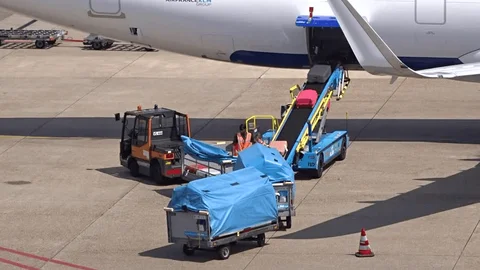
Airport ground staff play a critical role in ensuring smooth and efficient operations at airports. They are responsible for various tasks, such as assisting passengers, managing baggage, and coordinating with different airport departments. Since the job involves handling diverse responsibilities and working in a fast-paced environment, specific skills are essential for ground staff to excel in their roles.
Here are the most important skills required to succeed as airport ground staff:
1. Excellent Communication Skills
Effective communication is one of the most crucial skills for airport ground staff. They need to interact with passengers, airline crew, and other airport personnel regularly. Clear and polite communication helps in addressing passenger queries, providing instructions, and ensuring everyone is well-informed.
Key aspects of communication skills include:
Speaking clearly and confidently
Listening actively to passenger concerns
Providing accurate information in a calm manner
Good communication ensures that passengers have a positive experience, even in stressful situations such as flight delays or cancellations.
2. Customer Service Skills
Providing excellent customer service is at the heart of a ground staff member's job. Passengers may face issues during check-in, boarding, or baggage handling, and it is the responsibility of ground staff to resolve these problems efficiently and professionally.
To deliver outstanding customer service, ground staff must:
Be patient and empathetic
Handle complaints gracefully
Offer quick solutions to passenger problems
A friendly and helpful attitude can significantly enhance the overall passenger experience.
3. Problem-Solving Abilities
Airports are dynamic environments where unexpected situations can arise at any moment, such as flight delays, baggage mishandling, or last-minute gate changes. Ground staff must be able to think quickly and come up with practical solutions to these problems.
Strong problem-solving skills enable them to:
Make quick decisions under pressure
Find alternative solutions for passengers
Coordinate with different departments to resolve issues promptly
4. Teamwork and Collaboration
Airport operations require seamless coordination between multiple teams, including security, airlines, and ground handling agencies. Ground staff must work effectively with others to ensure smooth operations.
Good teamwork involves:
Being cooperative and supportive
Sharing information promptly
Respecting the roles and responsibilities of others
Collaboration is key to maintaining efficiency and ensuring passenger satisfaction.
5. Time Management Skills
Airports operate on strict schedules, and any delay can disrupt flight operations. Ground staff must be able to manage their time effectively to complete tasks on time, such as boarding passengers or loading baggage.
Effective time management includes:
Prioritizing tasks based on urgency
Handling multiple responsibilities efficiently
Meeting tight deadlines without compromising on service quality
6. Attention to Detail
In aviation, even the smallest mistake can lead to significant issues. Ground staff must pay close attention to details while handling passenger information, baggage tags, and boarding passes to avoid errors.
Attention to detail helps in:
Ensuring accurate documentation
Preventing baggage mix-ups
Maintaining safety and security protocols
7. Physical Stamina and Fitness
The job of airport ground staff often involves long hours of standing, walking, and handling luggage. Therefore, physical fitness and stamina are important to perform duties efficiently.
Ground staff must:
Be able to lift and move heavy luggage
Stay energetic throughout long shifts
Adapt to working in various weather conditions, especially those handling tasks on the tarmac
8. Multitasking Ability
Ground staff are often required to manage multiple tasks simultaneously, such as assisting passengers while coordinating with airline crew and handling luggage issues. Being able to multitask effectively is crucial for maintaining smooth operations.
Good multitasking skills involve:
Staying organized
Handling several responsibilities without losing focus
Prioritizing tasks based on their importance
9. Knowledge of Safety and Security Protocols
Since airports are sensitive environments, ground staff must be well-versed in safety and security protocols. They need to ensure that all procedures are followed to maintain a safe environment for passengers and staff.
Key areas of knowledge include:
Security screening procedures
Emergency protocols
Handling hazardous materials
10. Technical Knowledge
Ground staff must also be familiar with various airport systems and equipment, such as check-in kiosks, baggage handling systems, and communication devices. Basic technical knowledge helps them operate these tools efficiently and troubleshoot minor issues when needed.
Conclusion
To excel as airport ground staff, individuals need a combination of technical knowledge, interpersonal skills, and physical stamina. Key skills such as communication, customer service, problem-solving, and teamwork are essential for ensuring smooth airport operations and delivering a positive passenger experience. With proper training, dedication, and the right skill set, aspiring ground staff can build a successful career in the dynamic aviation industry.
0 notes
Text
What Are The Best Strategies And Resources For Effective Preparation For The AME Exam?

Preparing for the AME (Aircraft Maintenance Engineer) exam requires a well-structured study plan, access to reliable resources, and practical hands-on training. The Directorate General of Civil Aviation (DGCA) conducts the AME exams in India, which are mandatory for obtaining an AME license. Since the exam is highly competitive and requires both theoretical knowledge and practical skills, candidates must adopt the right strategies to succeed.
In this article, we will cover the best strategies and resources to help aspiring AMEs prepare effectively for the exam.
1. Understand the Exam Pattern and Syllabus
Before starting your preparation, it is essential to understand the AME exam pattern and syllabus. The AME exam is divided into multiple modules, each focusing on different aspects of aircraft maintenance. Depending on your specialization, you may need to appear for specific modules.
Common Modules: These include Engineering Mathematics, Physics, and Electrical Fundamentals.
Specialized Modules: These cover topics like airframe systems, power plant systems, and avionics.
Thoroughly reviewing the syllabus will help you focus on the relevant topics and avoid wasting time on unnecessary material.
2. Join a DGCA-Approved AME Institute
Enrolling in a DGCA-approved AME institute is highly recommended, as these institutes provide structured training programs and experienced faculty who are familiar with the exam requirements. They offer both classroom instruction and practical training, which are essential for understanding complex aircraft systems.
Moreover, many DGCA-approved institutes conduct mock exams and provide study materials tailored to the AME syllabus, making it easier for candidates to prepare effectively.
3. Use Standard Study Materials
Using the right study materials is crucial for success in the AME exam. Some of the best resources include:
DGCA-Approved Books: These books are specifically designed for the AME syllabus and cover all the essential topics in detail.
Technical Manuals: Aircraft maintenance manuals and technical documents are valuable resources for understanding real-world maintenance procedures.
Previous Year Question Papers: Solving past question papers helps candidates understand the exam pattern, identify important topics, and improve time management.
4. Focus on Practical Training
The AME exam not only tests theoretical knowledge but also requires practical skills. Candidates should take advantage of the hands-on training provided by their AME institutes. Practical training includes:
Working on actual aircraft components
Understanding maintenance procedures
Learning to use tools and equipment
This experience is invaluable, as it helps candidates gain confidence and familiarity with aircraft systems, which is critical for both the exam and future job roles.
5. Time Management and Consistent Practice
Effective time management is essential for aircraft maintenance engineering exam preparation. Since the syllabus is vast, candidates should create a study schedule that covers all topics while allowing time for revision.
Break down the syllabus into smaller sections and set daily or weekly goals.
Allocate more time to difficult subjects or modules where you need improvement.
Regularly revise key concepts to ensure better retention.
Take mock tests to practice under exam conditions and improve speed and accuracy.
6. Stay Updated with DGCA Guidelines
The DGCA periodically updates the syllabus, exam pattern, and regulations. Candidates should regularly check the official DGCA website for any changes or announcements related to the AME exam. Staying updated ensures that you are preparing according to the latest guidelines.
7. Join Study Groups and Online Forums
Joining study groups and online forums can be beneficial, as they provide a platform to discuss difficult topics, share resources, and get advice from other candidates and experienced AMEs. Collaborative learning can help clarify doubts and improve understanding of complex concepts.
Some popular online platforms for AME exam preparation include:
Aviation-specific forums
Social media groups dedicated to AME candidates
Online courses and video tutorials
8. Take Care of Your Health
Preparing for the AME exam can be stressful, especially as the exam date approaches. It is important to maintain good physical and mental health during your preparation. Here are some tips:
Get adequate sleep to ensure your mind stays sharp.
Eat a balanced diet to maintain energy levels.
Take short breaks during study sessions to avoid burnout.
Practice relaxation techniques, such as deep breathing or meditation, to manage stress.
Conclusion
Preparing for the AME exam requires a combination of thorough understanding, consistent practice, and practical training. By following the strategies outlined above and using reliable resources, candidates can enhance their chances of passing the exam and obtaining a DGCA license. Joining a DGCA-approved AME institute, focusing on practical skills, solving previous year question papers, and staying updated with DGCA guidelines are key steps in effective preparation.
With dedication, proper planning, and the right approach, aspiring AMEs can achieve their goal of becoming licensed Aircraft Maintenance Engineers and build a rewarding career in the aviation industry.
0 notes
Text
Career Opportunities With A BBA In Aviation Management

A Bachelor of Business Administration (BBA) in Aviation Management opens up a variety of exciting career opportunities in the rapidly growing aviation industry. This degree equips students with both business and aviation knowledge, making it a perfect choice for those who wish to pursue managerial roles within the aviation sector.
1. Airport Management
One of the most popular career paths for graduates with a BBA in Aviation Management is airport management. Airports require skilled professionals to oversee day-to-day operations, ensure passenger safety, and handle logistics. As an airport manager, you could be involved in the management of terminal services, security procedures, customer service, and coordination with airlines and government agencies.
2. Airline Operations
Airlines need a team of professionals to handle various operational aspects such as flight scheduling, crew management, cargo operations, and customer service. With a BBA in Aviation Management, you can pursue roles like an operations manager, flight operations coordinator, or route planner. You’ll be responsible for ensuring smooth operations and ensuring that both passengers and cargo are transported efficiently.
3. Aviation Safety Officer
Safety is a top priority in the aviation industry, and aviation safety officers play a crucial role in ensuring that all safety regulations are followed. With a degree in aviation management, you can work as a safety officer to monitor safety standards, conduct regular inspections, and ensure compliance with both national and international aviation safety regulations.
4. Air Traffic Control Management
While air traffic controllers require specialized training, a BBA in Aviation Management can help you pursue a managerial role in air traffic control (ATC) operations. These professionals ensure the safe and efficient movement of aircraft in the airspace and at airports. A background in aviation management could lead to supervisory or administrative positions in ATC operations.
5. Aviation Marketing and Sales
Aviation marketing and sales professionals are responsible for promoting airline services and selling tickets to customers. With a BBA in Aviation Management, you can work as a marketing manager or sales executive for airlines, travel agencies, or aircraft manufacturers. Your job would include planning promotional strategies, understanding customer behavior, and identifying new market opportunities to increase revenue.
6. Aviation Consulting
Aviation consultants provide expert advice to airlines, airports, and other aviation businesses on how to improve operations, optimize costs, and increase profitability. With the right skills and experience, you could work as a consultant for aviation firms, providing insight on industry trends, regulatory changes, and technological advancements. This is an ideal path if you enjoy problem-solving and strategic planning.
7. Cargo and Logistics Management
Aviation isn't just about passengers. The transportation of goods by air is a significant part of the aviation industry. Graduates can pursue careers in cargo and logistics management, handling the movement of goods through airports, ensuring timely deliveries, and managing supply chain processes. Roles include logistics coordinator, cargo supervisor, and freight operations manager.
8. Aircraft Maintenance and Engineering Management
While a BBA in Aviation Management isn’t directly related to engineering, you could pursue managerial roles in aircraft maintenance and repair operations. In this role, you would supervise maintenance teams, ensure compliance with safety standards, and help streamline processes to keep aircraft in top working condition.
Conclusion
A BBA in Aviation Management offers a wide range of career opportunities in one of the most dynamic and growing industries in the world. Whether you're interested in working at an airport, managing airline operations, ensuring safety, or working in marketing or logistics, a degree in aviation management provides a solid foundation to build a successful career in aviation. The aviation industry continues to evolve, and with this degree, you'll be well-positioned to play a key role in its future.
0 notes
Text
What Are The Key Skills Required To Excel As Airport Ground Staff?
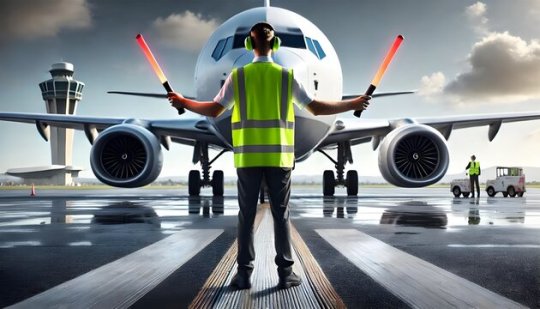
Airport ground staff play a crucial role in ensuring the smooth functioning of airport operations. From assisting passengers to managing baggage, handling emergencies, and coordinating with airline crew, their responsibilities are diverse and demanding. To excel in this career, aspiring ground staff must possess a variety of key skills. Below is a comprehensive overview of the essential skills required to thrive as airport ground staff.
1. Excellent Communication Skills
Effective communication is one of the most important skills for airport ground staff. They interact with passengers, airline crew, and other airport personnel regularly. Being able to convey information clearly, politely, and efficiently ensures seamless operations and a positive experience for passengers.
Verbal Communication: Handling queries, giving directions, and making announcements.
Written Communication: Filling out reports and logging incidents.
2. Customer Service Skills
Airport ground staff are often the first point of contact for passengers. Providing excellent customer service enhances passenger satisfaction and helps in building a positive reputation for the airline and the airport.
Empathy: Understanding passenger concerns, especially in stressful situations.
Patience: Dealing with frustrated or confused travelers calmly.
3. Problem-Solving Abilities
Issues such as flight delays, lost luggage, and passenger complaints require quick thinking and effective problem-solving. Ground staff must be able to assess situations quickly and come up with practical solutions to ensure minimal disruption.
Decision-Making: Making the right call during time-sensitive situations.
Resourcefulness: Utilizing available resources to resolve problems efficiently.
4. Multitasking Skills
Airport environments are fast-paced, with multiple tasks requiring attention simultaneously. Ground staff need to manage various duties, from checking in passengers to ensuring baggage is correctly loaded, all while maintaining a high level of accuracy.
5. Teamwork and Coordination
The role of airport ground staff involves close coordination with other team members, airline crew, and airport authorities. Strong teamwork ensures that tasks are completed efficiently and safely.
Collaboration: Working effectively with different departments.
Reliability: Being dependable and contributing consistently to the team.
6. Technical Skills
Familiarity with airport and airline software systems is essential for handling tasks such as check-in, boarding, and baggage handling. Basic technical knowledge helps ground staff use these systems efficiently.
7. Time Management
Timeliness is critical in airport operations. Ground staff must manage their time well to ensure that flights depart and arrive on schedule.
8. Physical Fitness
Ground staff roles can be physically demanding, especially those involving baggage handling and aircraft loading. Good physical fitness is necessary to handle the workload without fatigue.
9. Cultural Awareness
Airports serve travelers from all over the world. Being culturally aware and respectful ensures that ground staff can effectively communicate with people from different backgrounds and provide a welcoming experience.
10. Attention to Detail
Whether it's checking passenger documentation, ensuring baggage tags are correct, or verifying safety protocols, attention to detail is vital to prevent errors and ensure safety.
11. Stress Management
The airport environment can be high-pressure, with tight schedules, large crowds, and unexpected issues. Ground staff must stay calm under pressure and manage stress effectively.
12. Language Skills
Proficiency in multiple languages is an asset for airport ground staff. It allows them to communicate with international passengers and provide better assistance.
Conclusion
To excel as airport ground staff, individuals must develop a mix of interpersonal, technical, and organizational skills. Effective communication, customer service, problem-solving, and teamwork are crucial for handling the diverse challenges of the job. With the right skill set, airport ground staff can ensure smooth airport operations and enhance the passenger experience, making it a rewarding and dynamic career path.
0 notes
Text
Is Aeronautical Engineering 4 Years?

Aeronautical engineering is one of the most sought-after fields for students interested in aviation, aircraft design, and advanced technology. A common question among aspiring students is, “Is aeronautical engineering a 4-year course?” The answer is yes, aeronautical engineering is typically a 4-year undergraduate degree program. Let’s explore this in more detail, including what the course entails, its structure, and why it is an excellent choice for aspiring engineers.
Course Duration and Structure
In India and many other countries, aeronautical engineering is offered as a Bachelor of Technology (B.Tech) or Bachelor of Engineering (B.E) degree. The course duration is 4 years, divided into eight semesters. Each semester is about six months long, during which students study various theoretical subjects, participate in laboratory sessions, and work on projects.
The 4-year structure is designed to provide a balance between theoretical knowledge and practical application. In the first year, students typically study fundamental engineering subjects, including mathematics, physics, chemistry, and basic engineering concepts. From the second year onward, the focus shifts to core aeronautical engineering subjects.
Key Subjects Covered
Aeronautical engineering covers a broad range of subjects to ensure students gain a comprehensive understanding of aircraft design, maintenance, and operation. Some of the key subjects include:
Aerodynamics — The study of how air interacts with moving objects, especially aircraft.
Aircraft Structures — Understanding the components and framework of an aircraft.
Propulsion — Learning about engines and power systems that propel aircraft.
Flight Mechanics — The principles governing the motion of aircraft in the air.
Avionics — Aircraft electronic systems, including navigation and communication.
Materials Science — Studying materials used in building aircraft to ensure safety and efficiency.
Practical Training and Internships
In addition to classroom learning, practical training is a vital part of aeronautical engineering. Most universities have well-equipped laboratories where students can perform experiments and learn through hands-on experience.
Internships are often mandatory and provide students with real-world exposure. Students may intern with leading aviation companies, aircraft manufacturers, or research organizations, which helps them gain industry experience and understand the working environment.
Final Year Project
The final year typically involves a major project, where students apply what they have learned to solve real-world problems. This project is an essential part of the curriculum as it helps students develop problem-solving skills, teamwork, and technical expertise.
Why Choose Aeronautical Engineering?
Aeronautical engineering is a great choice for students passionate about aviation and technology. The 4-year program provides in-depth knowledge and skills required for various career opportunities in the aerospace industry. Graduates can work in areas such as aircraft design, research and development, maintenance, and even space exploration.
Moreover, the field is constantly evolving, with new technologies like drones, electric aircraft, and space tourism becoming increasingly important. This opens up exciting opportunities for future aeronautical engineers.
Conclusion
Yes, aeronautical engineering is a 4-year undergraduate degree program designed to provide students with a solid foundation in aircraft and aerospace technology. The course duration, combined with its comprehensive curriculum and practical exposure, ensures that students are well-prepared to enter the dynamic field of aviation and aerospace. If you have a passion for flying, designing aircraft, and exploring new frontiers, aeronautical engineering is an excellent path to pursue.
0 notes
Text
What Are The Key Responsibilities Of An Aeronautical Engineer?
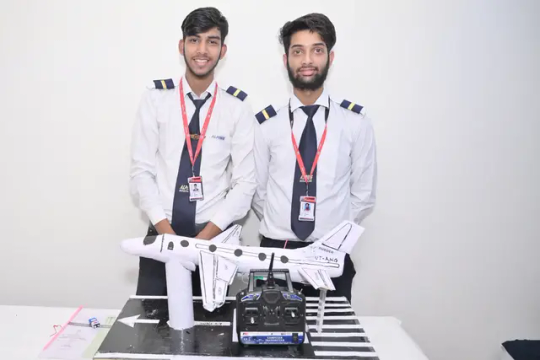
Aeronautical engineering is a specialized branch of engineering that focuses on the design, development, testing, and maintenance of aircraft. It plays a crucial role in advancing the aviation industry by improving the efficiency, safety, and performance of air vehicles. Aeronautical engineers work on various types of aircraft, including commercial airplanes, military jets, helicopters, and even drones. Here is a detailed overview of the key responsibilities of an aeronautical engineer.
1. Designing Aircraft and Components
One of the primary responsibilities of an aeronautical engineer is designing aircraft and their components. This involves creating detailed plans and blueprints for various parts, such as wings, fuselage, propulsion systems, and landing gear. Aeronautical engineers use advanced computer-aided design (CAD) software to model and simulate how the aircraft will perform under different conditions.
2. Conducting Research and Development
Aeronautical engineers are responsible for researching new materials, technologies, and systems to enhance aircraft performance. This may include exploring lightweight materials to reduce fuel consumption, developing advanced aerodynamics for faster flight, or improving propulsion systems. Their research helps in the innovation of next-generation aircraft.
3. Testing and Evaluating Aircraft
Before an aircraft can be certified for flight, it must undergo rigorous testing to ensure it meets safety and performance standards. Aeronautical engineers design and conduct these tests, which may involve wind tunnel testing, structural stress testing, and flight trials. They analyze the results to identify any issues and make necessary modifications to improve the aircraft’s performance.
4. Ensuring Compliance with Aviation Regulations
Aeronautical engineering requires adherence to strict regulations and standards set by aviation authorities, such as the Directorate General of Civil Aviation (DGCA) in India or the Federal Aviation Administration (FAA) in the United States. Aeronautical engineers ensure that the aircraft they design and develop comply with these safety and performance regulations.
5. Improving Fuel Efficiency and Environmental Impact
With increasing concerns about environmental sustainability, aeronautical engineers work to improve fuel efficiency and reduce the environmental impact of aircraft. This involves developing new engine technologies, optimizing aerodynamic designs, and exploring alternative fuels. Their efforts help make air travel more sustainable.
6. Collaborating with Cross-Functional Teams
Aeronautical engineers often work as part of a larger team that includes other engineers, technicians, and project managers. Effective communication and collaboration are essential to ensure that all aspects of aircraft design, development, and maintenance are seamlessly integrated.
7. Maintaining and Upgrading Existing Aircraft
In addition to designing new aircraft, aeronautical engineers are responsible for maintaining and upgrading existing aircraft. They inspect aircraft for wear and tear, recommend repairs or replacements, and oversee maintenance work to ensure continued safety and performance.
8. Problem-Solving and Troubleshooting
Aeronautical engineers must have strong problem-solving skills to identify and resolve issues that arise during the design, development, or operation of aircraft. This may include diagnosing performance issues, structural problems, or system malfunctions and finding effective solutions.
9. Documenting Processes and Reporting
Accurate documentation is a vital part of aeronautical engineering. Engineers must maintain detailed records of designs, tests, inspections, and maintenance activities. These reports are crucial for regulatory compliance, future reference, and continuous improvement.
Career Opportunities in Aeronautical Engineering
Aeronautical engineers can pursue a variety of career paths in the aviation industry. They may work for aircraft manufacturers, defense organizations, research institutions, or airlines. With advancements in space exploration, some aeronautical engineers also transition into the aerospace sector, working on spacecraft and satellites.
Conclusion
Aeronautical engineering is a dynamic and challenging field that offers exciting career opportunities. The key responsibilities of an aeronautical engineer revolve around designing, testing, maintaining, and improving aircraft to ensure they meet high safety and performance standards. With the ongoing growth of the aviation industry and increasing focus on sustainability, aeronautical engineers will continue to play a vital role in shaping the future of air travel. Whether you are passionate about designing cutting-edge aircraft or improving existing technologies, aeronautical engineering provides a rewarding and impactful career path.
0 notes
Text
What Is The Scope Of Aeronautical Engineering In 2025?
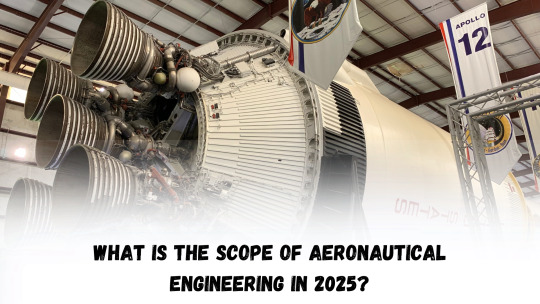
Aeronautical engineering is one of the most exciting and dynamic fields of engineering, dealing with the design, development, testing, and maintenance of aircraft. As we move into 2025, the scope of aeronautical engineering is expanding due to technological advancements, increased focus on sustainable aviation, and the growing demand for efficient air transportation. Here is an overview of the promising opportunities in this field in 2025:
1. Technological Innovations
Technological advancements such as artificial intelligence (AI), machine learning, and the Internet of Things (IoT) are transforming the aeronautical industry. Engineers are increasingly involved in creating smarter aircraft systems, such as autonomous flight technology and advanced navigation systems, enhancing operational efficiency and safety.
2. Sustainable Aviation
With the global push towards sustainability, the aviation industry is focusing on developing eco-friendly aircraft. This includes electric and hybrid aircraft, lighter materials, and fuel-efficient engines. Aeronautical engineers are at the forefront of designing and implementing these innovations to reduce the carbon footprint of aviation.
3. Increased Air Travel Demand
As economies recover post-pandemic, air travel is experiencing a resurgence. The increased demand for commercial flights, cargo services, and defense aviation is driving the need for skilled aeronautical engineers. Emerging markets, especially in Asia and the Middle East, are contributing significantly to this growth.
4. Space Exploration and Tourism
The line between aeronautical engineering and astronautical engineering is blurring with advancements in space exploration and the rise of space tourism. Companies like SpaceX, Blue Origin, and Boeing are creating opportunities for aeronautical engineers to contribute to spacecraft design and related technologies.
5. Defense and Military Applications
Aeronautical engineers play a crucial role in developing advanced fighter jets, unmanned aerial vehicles (UAVs), and other defense-related technologies. Governments around the world are investing heavily in upgrading their defense capabilities, providing numerous opportunities for engineers.
6. Job Opportunities and Career Growth
In 2025, the aeronautical engineering job market is expected to grow steadily. Major employers include aerospace companies, defense organizations, research institutions, and government agencies. Positions such as aircraft design engineer, propulsion engineer, and systems engineer are in high demand.
7. Global Collaboration and Opportunities
Globalization has opened up new avenues for aeronautical engineers. Collaborations between international aerospace organizations and governments allow engineers to work on cutting-edge projects across borders. Countries like the USA, UK, Germany, and India are hotbeds for aeronautical innovation.
8. Key Skills for Aeronautical Engineers in 2025
To excel in 2025, aeronautical engineers must focus on developing skills such as:
Proficiency in CAD and simulation software
Knowledge of advanced materials and manufacturing techniques
Expertise in avionics and propulsion systems
Strong analytical and problem-solving skills
Conclusion
The scope of aeronautical engineering in 2025 is brighter than ever, with numerous opportunities in both traditional aviation and emerging fields like sustainable flight and space exploration. As technology and innovation continue to drive the industry, aeronautical engineers will play a critical role in shaping the future of air and space travel.
0 notes
Text
What Is The Duration, Eligibility, Admission Process, And Scope Of A BSc In Aviation?

A Bachelor of Science (BSc) in Aviation is a specialized undergraduate program designed to provide students with in-depth knowledge about aviation operations, management, and technology. Here’s a detailed overview of the program, covering its duration, eligibility criteria, admission process, and career scope.
Duration of a BSc in Aviation
The BSc in Aviation is typically a 3-year undergraduate program, divided into six semesters. During this time, students cover a wide range of theoretical and practical subjects, including aviation safety, air navigation, meteorology, and airport management.
Eligibility for a BSc in Aviation
To enroll in a BSc in Aviation, candidates generally need to meet the following criteria:
Educational Qualification: Must have completed 10+2 (or equivalent) with Physics, Chemistry, and Mathematics as core subjects.
Minimum Marks: A minimum of 50-60% aggregate in 12th grade (depending on the university or institute).
Age Limit: Some institutes may have an age restriction, usually between 17 and 25 years.
Admission Process
The admission process for a BSc in Aviation usually involves:
Application Submission: Candidates must fill out the application form of the desired institute or university.
Entrance Exam: Some institutes conduct entrance exams to assess the candidates' knowledge and aptitude. Common exams include AME CEE, JEE Main or institute-specific tests.
Merit-Based Admission: Many institutes also offer admission based on the candidate’s 10+2 marks.
Interview/Screening: Shortlisted candidates may need to undergo a personal interview or medical screening.
Scope After a BSc in Aviation
A degree in aviation opens up diverse career opportunities in the aviation and allied industries, such as:
Pilot Training: Students can pursue commercial pilot training to become licensed pilots.
Airport Management: Careers in airport operations and administration.
Air Traffic Control: Managing the movement of aircraft in the airspace.
Aircraft Maintenance: Ensuring aircraft safety and functionality.
Aviation Safety Management: Roles focused on maintaining aviation safety standards.
Higher Studies: Students can opt for advanced courses like MBA in Aviation Management or M.Sc. in Aviation.
Conclusion
A B.Sc. in Aviation is an excellent choice for individuals passionate about aviation and looking for a career in this dynamic industry. With the growing demand for aviation professionals, this degree offers a promising future filled with diverse opportunities.
0 notes
Text
What Is The Salary Of IndiGo AME?
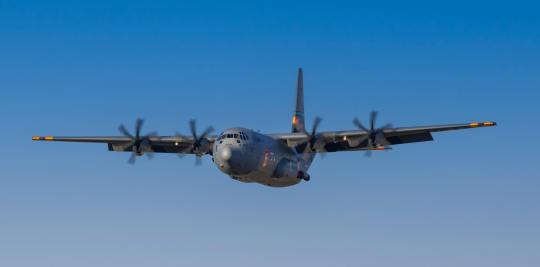
Aircraft Maintenance Engineers (AMEs) are crucial in ensuring the safety and airworthiness of aircraft. IndiGo, one of India’s leading airlines, offers competitive salaries and career growth opportunities for AMEs. If you’re considering a career as an AME with IndiGo, here’s a breakdown of their salary structure and factors influencing earnings.
Starting Salary of an IndiGo AME
The starting salary of an AME at IndiGo typically ranges from ₹3.5 to ₹7 lakh per annum, depending on the individual’s qualifications, license type, and experience. Entry-level AMEs usually earn a base salary of around ₹25,000 to ₹60,000 per month during their initial years.
Experienced AME Salaries
As AMEs gain experience and additional certifications, their salaries increase significantly. Mid-level AMEs with 5–8 years of experience can earn around ₹10 to ₹15 lakh annually, while senior AMEs with extensive experience and multiple licenses can earn ₹20 lakh or more per year.
Factors Influencing AME Salaries at IndiGo
1. Type of License: AMEs with specialized licenses, such as those for maintaining specific aircraft types (e.g., Airbus A320 or ATR), are in higher demand and earn better salaries. Holding EASA or DGCA certifications further enhances earning potential.
2. Experience Level: Freshers typically earn lower salaries compared to experienced AMEs. With hands-on expertise, problem-solving skills, and in-depth technical knowledge, salary packages improve over time.
3. Location: Salaries can vary based on the location of the maintenance base. Larger metro cities or international hubs may offer higher pay due to increased workload and living costs.
4. Shift Patterns: AMEs often work in shifts, including night shifts, which may come with additional allowances and benefits.
5. Performance and Roles: Promotions to senior roles such as Maintenance Supervisor or Quality Inspector also lead to significant salary hikes.
Additional Benefits Offered by IndiGo
Apart from a competitive salary, IndiGo provides other perks and benefits to its AMEs, including:
Travel Benefits: Free or discounted airline tickets for employees and family.
Health Insurance: Comprehensive health coverage for employees and their dependents.
Performance Bonuses: Incentives based on performance and company profitability.
Training Opportunities: IndiGo invests in AMEs’ continuous professional development, offering training for new certifications and skill enhancements.
Career Growth at IndiGo
IndiGo offers a structured career path for AMEs. Starting as junior engineers, they can move up to senior roles like Maintenance Engineers, Supervisors, and even Maintenance Managers. This growth not only brings higher salaries but also greater responsibilities and recognition in the aviation industry.
Conclusion
The salary of an IndiGo AME varies based on factors like experience, licensing, and role. While entry-level salaries range from ₹3.5 to ₹7 lakh per annum, experienced professionals can earn significantly more, along with various perks and benefits. With the growing aviation industry in India, AMEs at IndiGo have a stable and lucrative career path, making it a promising field for aspiring engineers.
0 notes
Text
Which Is The Best Institute To Study Aerospace Engineering In India?

Are you passionate about airplanes, spacecraft, and exploring the skies? If so, pursuing a career in aerospace engineering could be your ticket to an exciting and fulfilling future. But with so many options available, where should you study aerospace engineering in India? Let's take a closer look at some of the best institutes offering this coveted program.
1. Indian Institute of Technology (IIT)
Known for its rigorous academics and world-class faculty, the Indian Institutes of Technology (IITs) offer top-notch aerospace engineering programs.
IIT Bombay, IIT Madras, and IIT Kanpur are among the leading IITs known for their excellence in aerospace engineering education.
With state-of-the-art facilities, research opportunities, and industry collaborations, IITs provide a comprehensive learning experience for aspiring aerospace engineers.
2. Indian Institute of Space Science and Technology (IIST)
If your passion lies in space exploration and satellite technology, the Indian Institute of Space Science and Technology (IIST) is the place to be.
Located in Thiruvananthapuram, Kerala, IIST offers specialized programs in aerospace engineering with a focus on space science and technology.
With its close association with the Indian Space Research Organisation (ISRO), IIST provides unique opportunities for hands-on learning and research in space-related fields.
3. National Institute of Technology (NIT)
The National Institutes of Technology (NITs) are renowned for their engineering programs, including aerospace engineering.
NITs such as NIT Trichy, NIT Calicut, and NIT Rourkela offer comprehensive aerospace engineering curricula combined with excellent infrastructure and industry exposure.
Students graduating from NITs often find themselves well-prepared for careers in both the aeronautics and space sectors.
Choosing the right institute for your aerospace engineering education depends on various factors such as location, faculty expertise, infrastructure, and industry connections. Additionally, consider factors like campus culture, extracurricular activities, and opportunities for internships and research.
Remember, regardless of the institute you choose, your dedication, hard work, and passion for aerospace engineering will ultimately determine your success in the field. So, research your options, weigh your priorities, and embark on your journey to reach for the stars in the fascinating world of aerospace engineering!
0 notes
Text
What Is The Course Of DGCA AME License?

Are you fascinated by airplanes and passionate about their maintenance and safety? If so, pursuing a career as an Aircraft Maintenance Engineer (AME) regulated by the Directorate General of Civil Aviation (DGCA) might be the perfect fit for you. This comprehensive guide will walk you through the course of DGCA AME in simple terms, outlining the steps you need to take to become a licensed aircraft maintenance engineer.
What is DGCA AME License?
DGCA AME License refers to the Aircraft Maintenance Engineering program regulated by the Directorate General of Civil Aviation in India. It is a professional course that trains individuals to inspect, maintain, and certify the airworthiness of aircraft.
Course Structure:
1. Academic Training:
The DGCA AME course typically consists of theoretical and practical training covering various aspects of aircraft maintenance and engineering. Some of the key subjects include:
- Aircraft Structures
- Aircraft Systems
- Aviation Regulations
- Aircraft Maintenance Practices
- Human Factors in Aviation
2. Practical Training:
In addition to theoretical classes, students undergo practical training to gain hands-on experience in aircraft maintenance. This training often takes place in approved maintenance organizations or maintenance training organizations under the supervision of qualified instructors.
3. Examinations:
Students must pass DGCA-conducted examinations covering theoretical knowledge and practical skills in different categories of aircraft maintenance. These examinations assess the students' understanding of aircraft systems, maintenance procedures, and regulatory requirements.
4. Aircraft Type Rating:
After completing the academic and practical training, students may pursue aircraft type rating courses to specialize in specific aircraft types. This certification allows them to work on particular aircraft models and enhances their career prospects.
Licensing:
Upon successful completion of the DGCA AME course and passing all required examinations, students are eligible to apply for an Aircraft Maintenance Engineer License issued by the DGCA. This license authorizes them to perform maintenance, repairs, and inspections on aircraft registered in India.
Career Opportunities:
With a DGCA AME license, individuals can pursue various career opportunities in the aviation industry, including:
- Aircraft Maintenance Engineer
- Maintenance Technician
- Quality Assurance Inspector
- Technical Services Engineer
- Aircraft Maintenance Manager
Conclusion:
The DGCA AME course offers a structured pathway for individuals aspiring to build a rewarding career in aircraft maintenance and engineering. By completing the required training and examinations, you can become a licensed aircraft maintenance engineer and contribute to ensuring the safety and airworthiness of aircraft in the aviation industry.
If you're passionate about aircraft and committed to upholding the highest standards of safety and maintenance, embarking on the DGCA AME journey could be your first step towards a fulfilling career in aviation.
0 notes